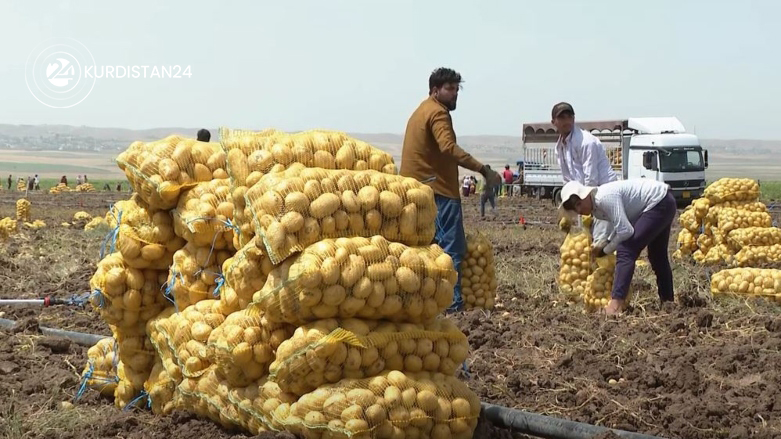Gulf and Jordanian McDonald's restaurants seek Kurdistan Region potatoes

ERBIL (Kurdistan 24) – Bawar Sabir Khoshnaw, a businessman in Erbil, on Monday told Kurdistan 24 that due to the superior quality of Kurdistan Region potatoes, McDonald's restaurant chains in the Gulf countries and Jordan have requested its supply.
On Saturday, eight containers containing 300 tons of potatoes produced by farmers in Erbil province were exported to the United Arab Emirates with the support of the Kurdistan Regional Government.
Representatives from various Arabian Gulf and Jordanian McDonald’s restaurants have regularly demanded 500 to 1,000 tons of Kurdish potatoes in total per week, according to Khosnaw.
Read More: Kurdistan Region exports 300 tons of potatoes to UAE
The businessman also noted that Kurdish potatoes are priced at more than $80 a ton because of their high quality compared to those grown in Egypt and Pakistan.
“The fruits and vegetables will be delivered from Erbil to the port of Um Qasr in Basra and from there exported to Dubai markets,” Khoshnaw added.
Moreover, he explained that they want to facilitate the export of potatoes from the Kurdistan Region to Azerbaijan because the price of potatoes in Azerbaijan reaches $800 per ton, and that will benefit Kurdistan Region farmers.
Meanwhile, Khoshnaw revealed that they also plan to export onions, cucumbers, and zucchini to the Gulf markets. The Kurdistan Region also plans to export a surplus of dairy products, olive oil, and other products that exceed the demand of the local population.
The McDonald’s Corporation has never officially granted a franchise license for a public restaurant in Iraq. Despite numerous applications, the corporation has allegedly denied requests due to security concerns and logistical constraints in the country.
